Thousands attend Notting Hill Carnival in west London
- Published
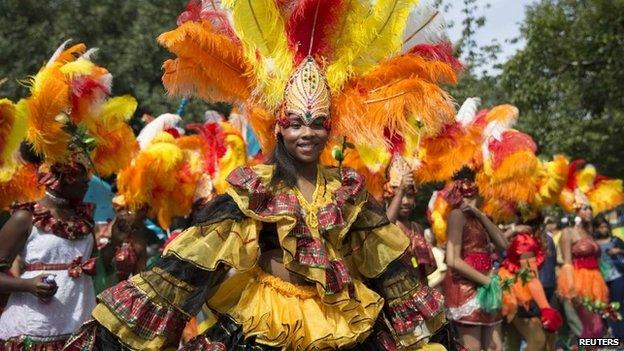
Hundreds of thousands of people attended the first day of Europe's biggest street festival, the Notting Hill Carnival.
The two-day event in west London started with children's day and featured Caribbean culture, food, music and dance.
Giant floats and dancers wearing colourful costumes made their way along the procession route from 10:00 BST.
About a million people are expected at the two-day event which ends on Monday.
Organisers say this year is part of the build-up to the event's 50th anniversary.
About 6,000 police officers attended and the Met Police said they had arrested 95 people for offences including drugs, public disorder, assault, possession of offensive weapons and theft.
Ch Supt Robyn Williams said the force's priority was to "facilitate a safe and vibrant carnival".
"Carnival very much presents us with two extremes; those who want to enjoy the sound systems, cuisine and have a good time and those who use it as an opportunity to commit crime," she said.
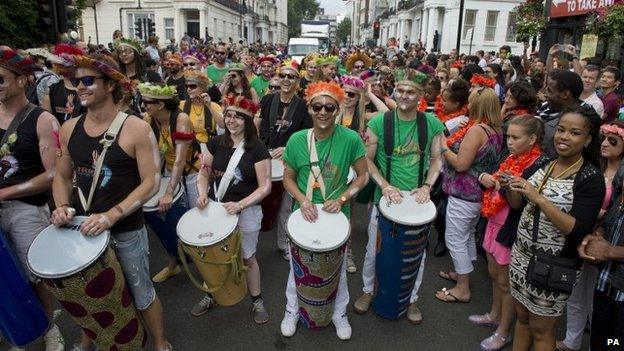
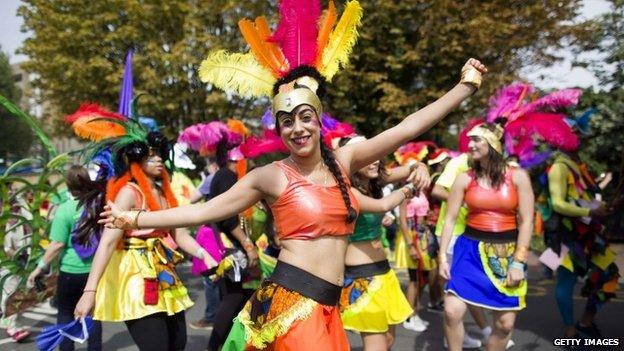
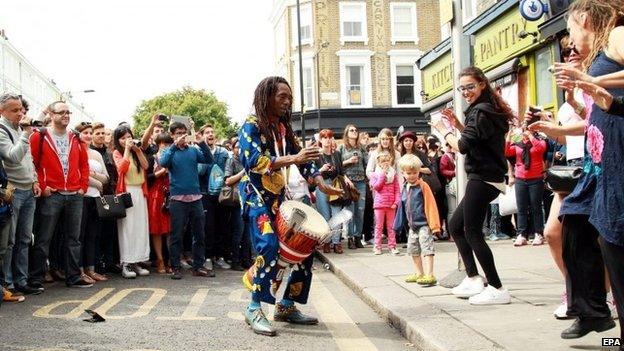
Prior to the main carnival, the J'ouvert event from 06:00 BST opened proceedings with a procession and a paint fight.
During the parade, the Chocolate Nation Mas float was followed by hundreds of people throwing liquid chocolate over themselves and the public as they danced through the streets.
Michelle Johns, 37, from Lincoln, who watching the procession with her family, said: "The group was spraying the chocolate around and going right up to them and spreading it on the officers' faces.
"The officers were laughing the whole time."
This year's event will pay tribute to the steel pan, the national instrument of Trinidad and Tobago, which has been a significant feature of the carnival from 1964 until the present day.
The Notting Hill Carnival Enterprises Trust said some people thought the first carnival took place in 1964, but others argue a street parade took place the following year.
However, the trust said there was documentary evidence which showed the first event with performers, costumes, music and placards took place in 1966
A crackdown by police in the run-up to the carnival on 21 August saw officers make 126 arrests and seize guns, drugs and about £78,000.
Officers known as "super-recognisers" are trained to spot anyone banned from attending the carnival in the crowds.
- Published26 August 2013
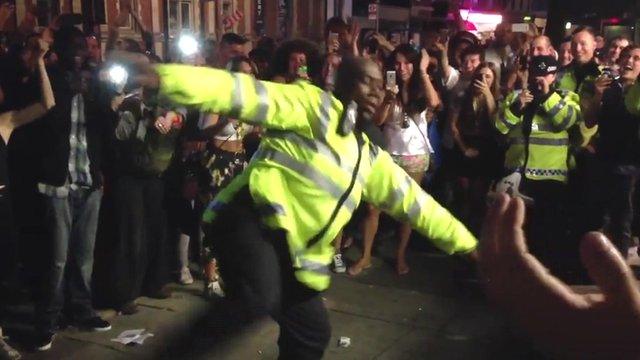
- Published24 August 2013